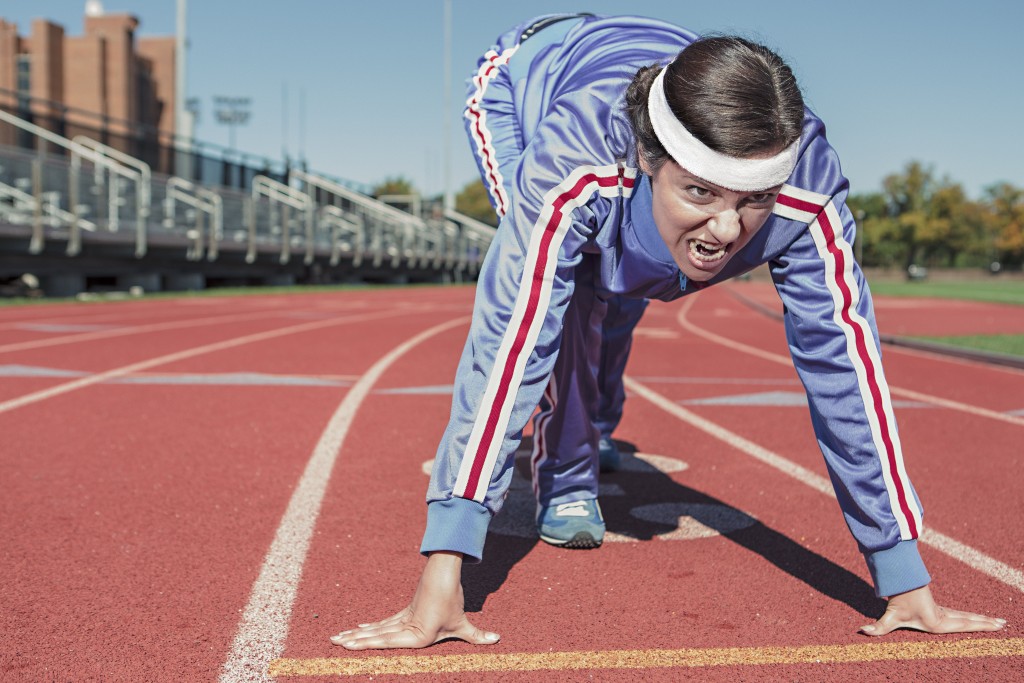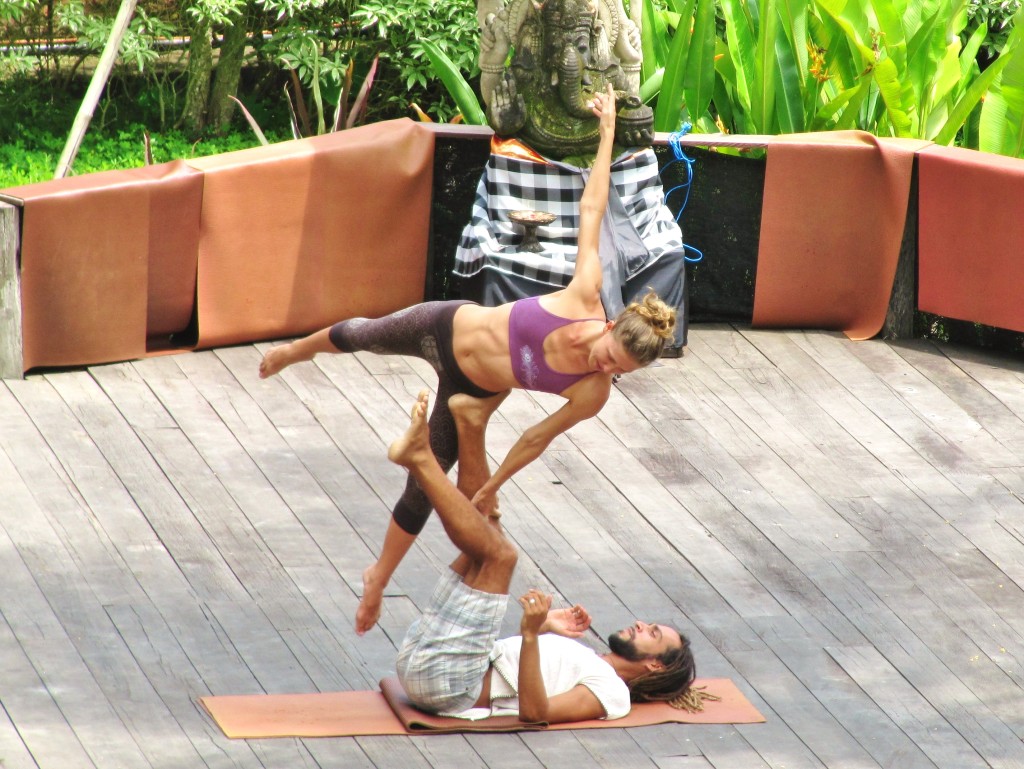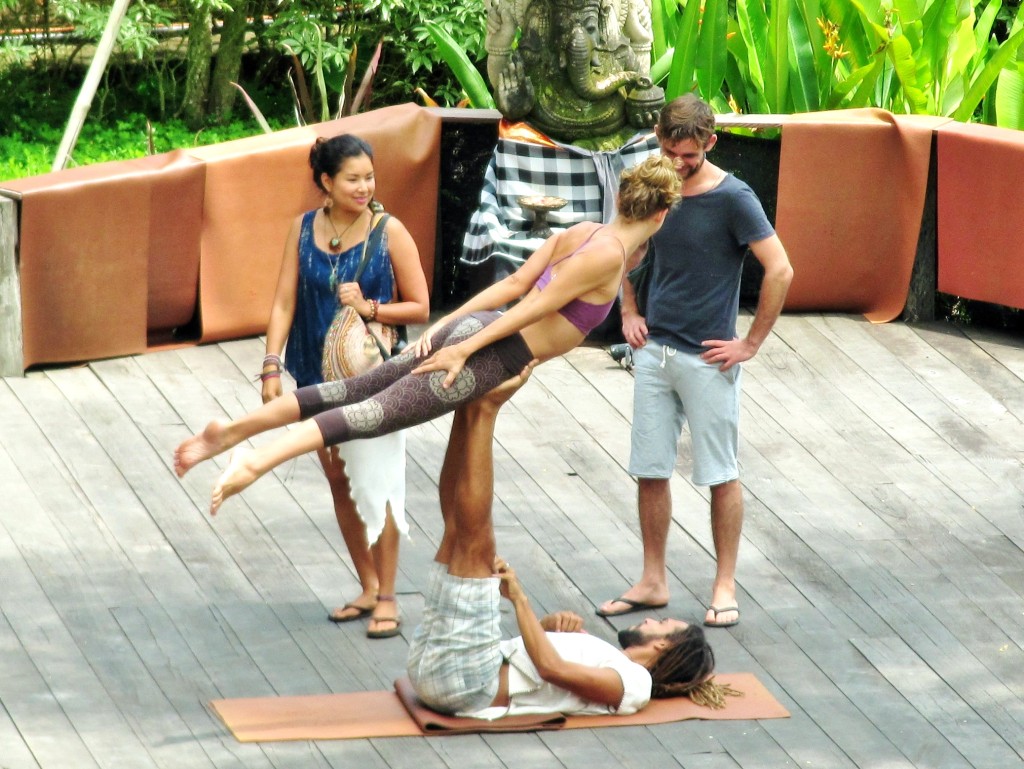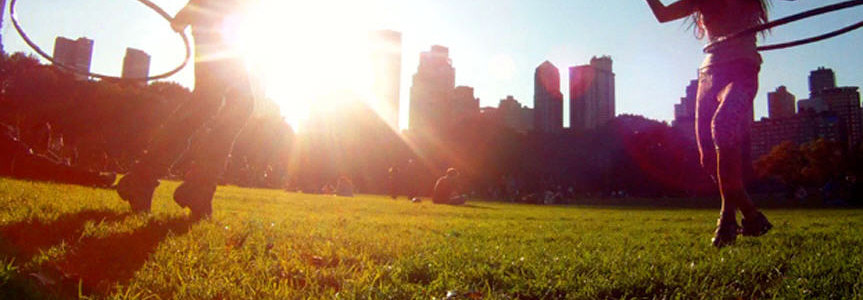Your heart is pumping harder. Oxygen-rich blood fills up your body. You hear the sound of your feet beating the street. There is only you and your breath – you are running.
Marathon runners train hard to hit the big 6 (Boston, Chicago, Tokyo, New York, London and Berlin marathon). This running madness made me wonder: Where do they take their motivation? What does running actually do for us and what can it mean to us?
Did you know that a regular jogger can see 13.000 sunsets more than a non-jogger? In average, moving your feet makes you live 6 years longer than coach potatoes (men 6.2 years and women 5.6 years).
We dug a little deeper into the science of running and what it does to our brain. Here we cover the most fascinating findings on running:
1. Therapy
As a natural treatment running is often used to help people with clinical depression and coping with addiction. Lots of runners do short distances as a way to release big emotions like frustration, aggression or sadness.
Running is known to be mood-enhancing. It increases the release of positive neurotransmitters, serotonin, dopamine and norepinephrine which are responsible for regulating mood. Plus, running puts the brain in ‘alpha-wave’ activity. Alpha waves are associated with feelings of calmness and well-being resulting you to feel like a genius, and who doesn’t want that?
2. Brainpower
There are plenty of studies on how exercise affects cardiovascular health, but there are also studies assessing the impact on mental performance. In fact, you literally train your brain as well while you are running.
Researchers from the University of Illinois found that exercising for 30 minutes already results in processing a problem faster and in a cognitive capacity improvement of up to 10 percent.
A clinical review reports that exercise leads to structural changes in the hippocampus which results in better learning and memory. Also, physically active people have a 60 percent lower risk for Alzheimer’s disease than non-movers.
3. Energy tank
Do you have this energy drop in the afternoon and even a coffee wouldn’t help? Go for a run in the morning or during lunch break. Running increases your energy level and keeps it higher throughout the day.
By engaging in low-intensity exercise such as a 10-minute walk your body produces more mitochondria to meet your needs and you can decrease your fatigue by 65%. So if you want to boost your energy get moving!
4. Power-walking
Walking has a tremendous effect on our brain’s activity. These brain scans from Hillman and colleagues tell enough. Here you can see our brain after sitting versus after a 20-minute walk:
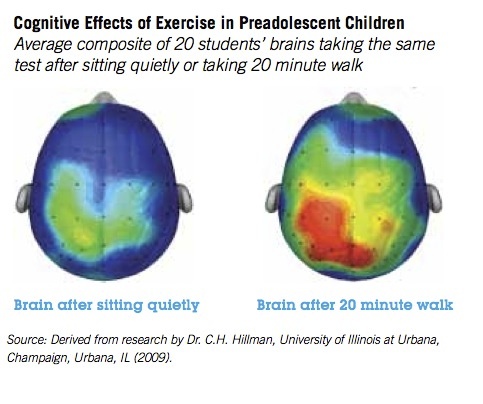 So there is no need to do a professional run to train your brain. Even more, cardiologist and researcher James O’Keefe states that we are born to walk rather than to run.
So there is no need to do a professional run to train your brain. Even more, cardiologist and researcher James O’Keefe states that we are born to walk rather than to run.
For those who are passionate about running: Light and moderate jogging was found to be more beneficial than being inactive. This isn’t an eye-opener yet, but did you know that light and moderate jogging is also more beneficial than going for a strenuous jog? In fact, fast-pace jogging appeared to be just as deadly as not moving at all!
It’s found that jogging for 1 to 2.4 hours per week is best for you and optimally not more than 3 times per week.
5. Running addiction
The effects of exercising have an addictive effect. If you can’t abstain from your running routine, you might be addicted in a similar way as seen in heroin addiction. After training for a while you need to exercise more to get the same level of euphoria.
However, aspiring runners and running starters, you don’t need to run far to feel upbeat! Only after having trained for quite some time, you have to do that extra-mile to still get that kick.
6. Runner’s High
Imagine yourself experiencing this:
‘Endorphins flood your brain and you are in euphoria. You realize: You have just finished conquering the world when most people have not even started their day. You feel like you could run forever. There isn’t any sore feeling in your body and you just feel amazing.’
This is how long-distance runners describe the so-called ‘Runner’s High‘. This god-like feeling is made possible by endorphins. The release of these naturally produced endogeneous opiods reduce feelings of pain and stress.
Whether you are a walker looking to become fit, a marathon runner aiming to recover faster or a starting runner who wants to improve endurance, moving your feet holds incredible powers for us to be fitter, stronger and of course smarter. 😉 Make sure you wear suitable shoes and maintain a proper posture to minimize risk to injury.
Now, get on your trainers and may the power of moving be with you!


